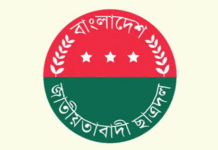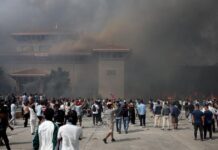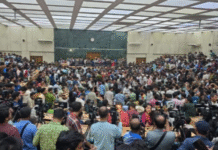
International Crisis Group has called for depolicising Bangladesh’s justice system to address law and order and help stall what it terms a democratic collapse.
In a report released on Monday, the Brussels-based group cautioned that the government’s heavy-handed measures are instigating violent counter-responses and creating opportunities for extremist outfits to regroup.
“The government’s reaction to rising extremism, including arrest and prosecution of several suspects without due process and transparency, is fuelling alienation that these groups can further exploit,” observed the ICG in its report “Political Conflict, Extremism and Criminal Justice in Bangladesh”.
“A deeply politicised, dysfunctional criminal justice system is undermining rather than buttressing the rule of law,” the report pointed out.
Also, it mentioned, the government’s excesses against political opponents and critics include enforced disappearances, torture and extra-judicial killings.
The ICG report suggested that ‘reconciling with the opposition and hence stabilising the state requires both political compromises and an end to the repressive use of law enforcement agencies and abuse of the courts.”
“The government needs to recognise that it is in its interest to change course, lest it fail to either contain violent extremism or counter political threats,” the report added.
“Heavy-handed measures are denting the government’s legitimacy and, by provoking violent counter-responses, benefitting violent party wings and extremist groups alike,” the report said and cited the example of recent killings of bloggers and foreigners as well as attacks on sectarian and religious moniroties.
The ICG expressed its views that the international community “can help to promote political reconciliation by, in the
U.S. and EU case, using economic levers to pressure Dhaka to respect civil and political rights”. The report recommended that New Delhi could use “close ties to urge the AL (Awami League) to allow the opposition legitimate political expression and participation”.
The group urged the government to avoid statements alleging the identity of those responsible for crimes while investigations are ongoing; and end the practice of presenting suspects to the media, rather than in court, as required by the constitution.
Dwelling on conflicting relations between the ruling Awami League and opposition BNP, the ICG explained that politicisation of the police and use of elite forces, particularly the Rapid Action Battalion (RAB), to silence political dissent, are laying the seeds of future violence.
“By concentrating on targeting the opposition, the police are failing to curb criminality; the prisons are overburdened by the mass arrests of opposition leaders and activists; and the judiciary, perceived as partisan for trials and sentences based on political grounds, is losing credibility,” said the report
It also referred to the legal mechanisms to silence the voice of the civil society and the media. The report further criticised the war crimes trial carried out by International Criminal Tribunal.
In such a context, the ICG called on the Bangladesh judiciary “to develop consistent judicial doctrine/interpretation upholding the right to a fair trial and restraining the executive branch from undermining fundamental constitutional rights and principles, including actions against civil society institutions that undermine their ability to function freely.”
The report also urged the higher judiciary to issue clear orders against any executive bodies or officials found to be interfering in the judicial process.
Source: Prothom Alo









